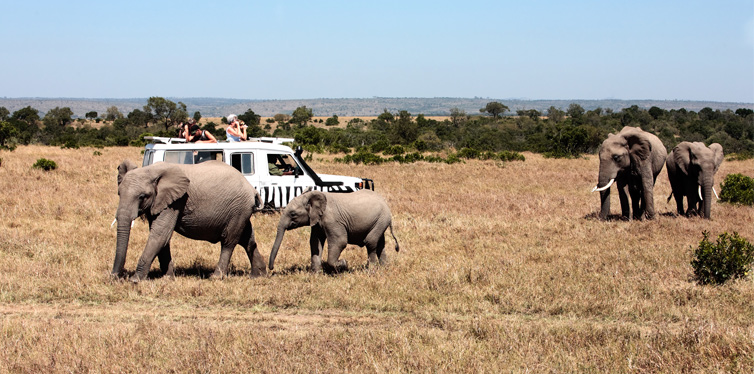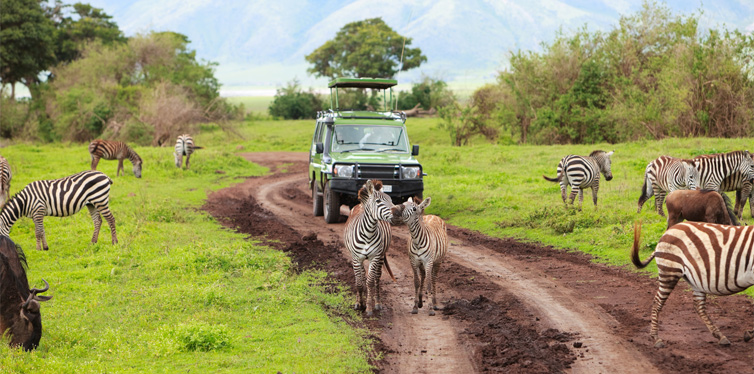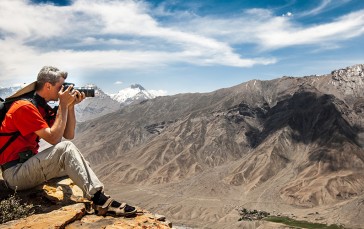Safari Travel Guide
Exploring the seemingly endless planes of Africa is an experience that should be on everyone’s bucket list. There’s wildlife and nature galore and there’s something quite healing about being in the middle of the bush and the unspoiled surrounds.
Planning the perfect trip can be quite tricky, however, and if you are not familiar with your location of choice and what to expect there, then you’ll need to put in some forethought and planning. There are so many different regions you can visit, each with different animals to see and activities to experience.
To help you plan the trip of a lifetime, we’ve put together this ultimate safari travel guide that raises a few questions and suggestions that we urge you to consider.

Take The Time To Do Some Research
These days, every trip starts with a good Google session. You could go the old school route and grab a few travel books from your local library or bookstore but from our experience, the online reviews from those who have “been there done that” give the most authentic info on what to expect.
Essentially, your research will be narrowed down to 4 important components; where to go, when to go, what type of gear to bring, and info on the necessary precautions.
Where Are The Best Places To Safari?
Every single country across the African country is unique and your decision will probably be based on the types of wildlife you would like to see. In this guide we will mention some of the African safari stalwarts, that is, the best places to safari if it’s a bona fide experience you’re after. These locations are pretty much guaranteed to feed the wildlife adventure you have in mind.
- South Africa – this is where cultural cities, good food, wine, and the Big 5 combine for a diverse African experience.
- Botswana – this area is popular for its pristine wilderness areas and incredible wildlife-watching.
- Kenya – if you’d like to come close to a big cat parading around its natural habitat, then Kenya hardly ever fails with its sightings.
- Zambia – this country is the ideal candidate for an off-the-beaten-track adventure and also features many walking safari options.
- Namibia – Namibia is home to some of the southern hemisphere’s most mystical landscapes and the rare desert elephant.
- Rwanda and Uganda – if you’re feeling daring, head to Rwanda or Uganda for a forest-filled adventure in seek of the exotic and mighty gorilla.
- Malawi – here you will be in the forefront of conservation in some of the more newly established game reserves.
- Tanzania – this spot offers tons of diverse activities and is home to beautiful beaches, scenic hiking trails, and of course, the Big 5.

What About Accommodation?
Most safari parks offer numerous types of accommodation. From 5-star Hilton hotels to rustic lodges and traditional bush camping (or glamping) – you can take your pick on what type of bed you’d like to sleep in each night.
Camping is always the more affordable option but you can also shop around for some excellent deals and packages.
When booking accommodation, search online for what previous guests have to say about the rooms and service – this will give you some solid insight on what to expect at each venue.
When’s The Best Time To Go?
Africa is an enormous continent and the climate conditions vary over the different parts. In some regions, the landscape will change color depending on the season and of course, some animals are more easily spotted at certain times of the year.
While there certainly is no “bad” time to visit, your decision is more likely to be based on your safari-style and the time of year that will best suit your schedule.
Basically, June to October across much of sub-Saharan Africa is considered the ideal time for a safari trip. This is because it’s the countries’ dry season and most of the animals can easily be spotted hanging around the watering holes.
This doesn’t mean you won’t have a successful trip during the remaining months. November through to April is the rainy season and during this time the vegetation becomes lush and green – a beautiful scene. It also doesn’t rain every day and during these summer months, most of the wildlife can be spotted under the shady African trees.

What Do You Need To Take With?
Depending on where you go, many African climates can be harsh and often unpredictable. This makes packing the necessary gear quite a challenge, especially if you are limited to a certain baggage weight. The essentials can, however, be narrowed down to the following:
- Start by making sure that your passport is packed and that it has not expired. We also suggest applying for travel insurance.
- If you take any prescription medication, make sure you have enough to last you your entire trip (pack this in your hand luggage for easy access).
- Sun protection. Don’t underestimate the power of the African sun. Make sure you’ve packed a sun hat and sunglasses as well as sunscreen (or grab some as soon as you arrive at the airport).
- This is going to be a trip of a lifetime, so make sure you have the gadgets you will need to capture those special moments. Pack your travel camera and invest in a pair of potent compact binoculars.
- Insect repellent. Apart from wildlife aplenty, bug life is also rife in this region. Make sure you bring along some potent bug repellent to keep the little critters at bay.
- Your toiletries should include all of your typically hygiene essentials. We do suggest, however, that you add a mini first aid kit to the mix and perhaps a stronger brand of antiperspirant.
- As for clothes, follow the weather trends in the area you are visiting and stick to lots of light layers instead of bulky garments. Your clothes should be casual and comfortable and you can keep to khaki colors so that you can wear the traditional safari attire. Comfortable hiking shoes and a pair of flip-flops will do for footwear. Don’t forget to pack a towel and your swimming trunk!
Are There Any Necessary Precautions?
Yes, quite a few, in fact. Some countries require that you receive certain mandatory vaccines before you enter. Malaria is one disease that can be quite extreme in certain spots of Africa. Consult with your doctor to see which necessary medical precautions you need to take before you hop onto the plane.
One last word of advice – listen to your tour guide, follow instructions, and do not break the rules! For the most part, safaris are 100% safe but if you fool around and try to pull some Rambo stunts, you could put yourself and others in serious danger.
Sources:
- The Ultimate African Safari Travel Guide – The World Pursuit
- The Ultimate Guide To Help You Plan A Safari – Timbuktu Travel
- What To Know Before Going On A Safari – Culture Trip










